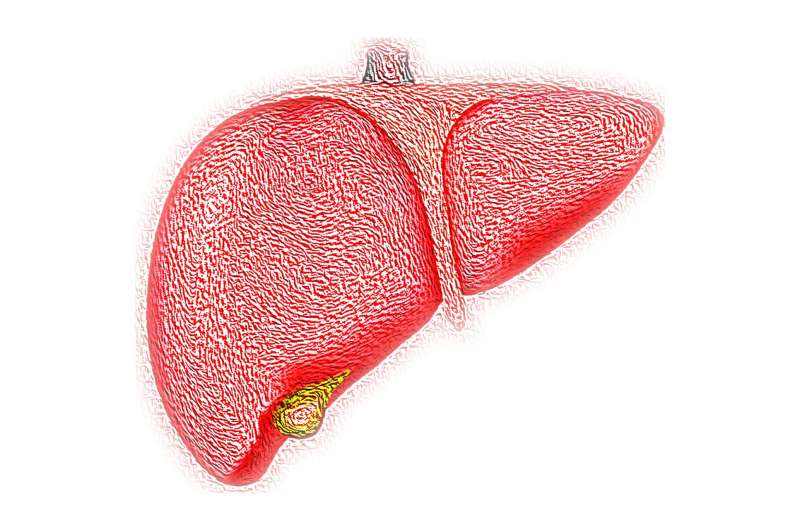Treating liver cancer

More than 41,000 new cases of primary liver cancer and intrahepatic bile duct cancer will be diagnosed in the U.S. this year, and more than 30,000 people will die of these diseases, according to the American Cancer Society.
Liver cancer is cancer that begins in the cells of your liver, which is a football-sized organ in the upper right portion of your abdomen. The liver is essential for digesting food and ridding your body of toxic substances.
Intrahepatic bile duct cancer, which sometimes is classified as a type of liver cancer, occurs in the parts of the bile ducts within the liver. Bile ducts carry bile, a digestive fluid, and they connect your liver to your gallbladder and small intestine.
Sometimes the cause of liver cancer is known, such as with chronic hepatitis infections. But sometimes liver cancer happens in people with no underlying disease, and it's not clear what causes it. Factors that increase the risk of liver cancer include chronic infection with hepatitis B or hepatitis C, diabetes, and excessive alcohol consumption.
If you've been diagnosed with liver cancer, your health care professional will work to determine the extent, or stage, of the cancer. Staging tests help determine the size and location of cancer and whether it has spread. Imaging tests used to stage liver cancer include CTs, MRIs and bone scans.
Treatment
Treatment for primary liver cancer depends on the stage of the disease, as well as your age, overall health and personal preferences.
Treatment options can include:
Surgery
Surgical treatments include:
- Surgery to remove the tumor: Your health care team may recommend an operation to remove the liver cancer and a small portion of healthy liver tissue that surrounds it if your tumor is small and your liver function is good. This recommendation also depends on the location of your cancer within the liver and your overall health.
- Liver transplant surgery: During liver transplant surgery, your diseased liver is removed and replaced with a healthy liver from a donor. Liver transplant surgery is only an option for a small percentage of people with early stage liver cancer.
Localized treatments
Localized treatments include:
- Heating cancer cells: Radio frequency ablation uses electric current to heat and destroy cancer cells.
- Freezing cancer cells: Cryoablation uses extreme cold to destroy cancer cells.
- Injecting alcohol into the tumor: During alcohol injection, pure alcohol is injected directly into tumors, either through the skin or during an operation, which causes the tumor cells to die.
- Injecting chemotherapy drugs into the liver: Chemoembolization is a type of chemotherapy treatment that supplies strong anti-cancer drugs directly to the liver.
- Placing beads filled with radiation in the liver: Tiny spheres that contain radiation may be placed directly in the liver where they can deliver radiation directly to the tumor.
Radiation therapy
This treatment uses high-powered energy from sources such as X-rays and protons to destroy cancer cells and shrink tumors. Radiation therapy might be an option if other treatments aren't possible or if they haven't helped. For advanced liver cancer, radiation therapy might help control symptoms.
Targeted drug therapy
Targeted drug treatments focus on specific abnormalities present within cancer cells. By blocking these abnormalities, targeted drug treatments can cause cancer cells to die. Many targeted drugs are available for treating advanced liver cancer.
Immunotherapy
Immunotherapy uses your immune system to fight cancer. Your body's disease-fighting immune system may not attack your cancer because the cancer cells produce proteins that blind the immune system cells. Immunotherapy works by interfering with that process. Immunotherapy treatments are generally reserved for people with advanced liver cancer.
Chemotherapy
Chemotherapy uses drugs to kill rapidly growing cells, including cancer cells. Chemotherapy can be administered through a vein in your arm, in pill form or both. Chemotherapy is sometimes used to treat advanced liver cancer.
Palliative care
Palliative care is specialized medical care that focuses on providing relief from pain and other symptoms of a serious illness. Palliative care specialists work with you, your family and your other health care professionals to provide an extra layer of support that complements your ongoing care.
Palliative care can be used while undergoing other aggressive treatments, such as surgery, chemotherapy or radiation therapy. When palliative care is used along with all of the other appropriate treatments, people with cancer may feel better and live longer.
2022 Mayo Clinic News Network.
Distributed by Tribune Content Agency, LLC.


















